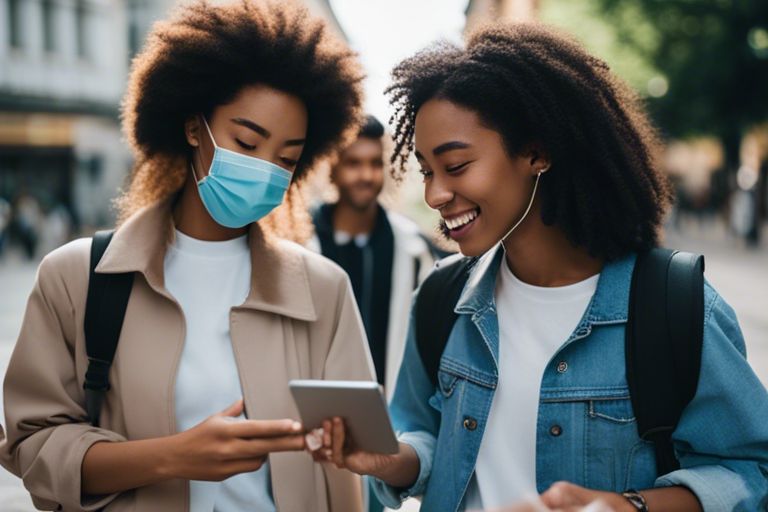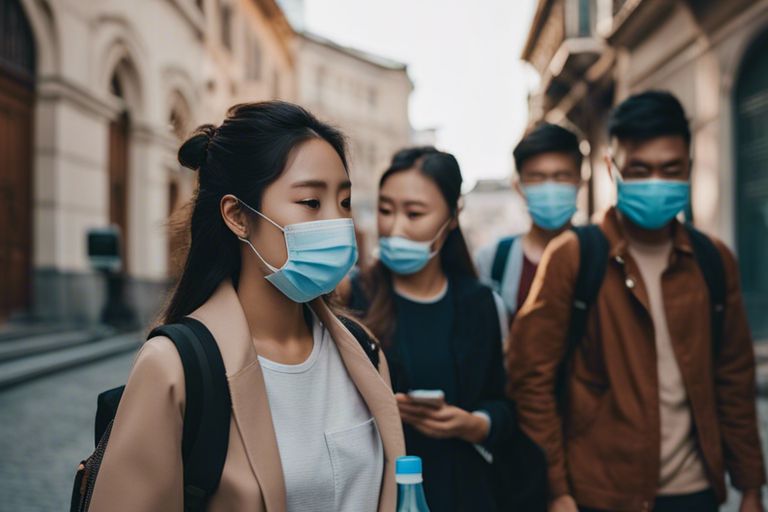It’s important for international students to prioritize health and safety when studying in a new country. By following important guidelines, such as staying up to date on vaccinations, obtaining the right insurance coverage, knowing how to access local emergency services, and understanding how to navigate a different environment, students can ensure a smooth and secure experience abroad. In this blog post, we’ll highlight key tips to help international students stay safe and healthy while pursuing their education in a foreign land.
Key Takeaways:
- Get vaccinated: Make sure you are up to date on all recommended vaccinations before traveling abroad to protect yourself from potential illnesses.
- Secure travel insurance: Purchase comprehensive travel insurance that covers medical expenses, emergency evacuation, and any other unforeseen circumstances.
- Know local emergency services: Research and save important phone numbers for local emergency services in case of any health or safety concerns while abroad.
- Stay alert in a new environment: Be aware of your surroundings, avoid risky situations, and trust your instincts to ensure your personal safety in a new location.
- Stay connected: Share your itinerary with trusted contacts, keep in touch regularly, and make use of smartphone safety apps if available to stay connected and safe while studying abroad.

Health Precautions and Vaccinations
Researching Necessary Vaccinations and Medications
Now is the time to research and ensure you have all the necessary vaccinations and medications recommended for the country you will be studying in. Different countries have different health risks, so it’s crucial to research and follow the guidelines provided by healthcare professionals or your university. Make sure to schedule appointments well in advance to allow time for any necessary booster shots or treatments.
Arranging Health Check-ups and Dental Visits Before Departure
With your departure date approaching, it’s important to arrange health check-ups with your doctor and dentist. Checking your overall health status and ensuring your vaccinations are up to date can prevent unexpected health issues while abroad. Dental visits are also crucial as untreated dental problems can turn into emergencies. Addressing any health concerns beforehand will ensure you can focus on your studies without worry.
Vaccinations such as hepatitis A, hepatitis B, and typhoid may be recommended depending on the destination. Additionally, it’s important to ensure you are up to date on routine vaccinations such as measles, mumps, and rubella (MMR) and influenza.

Securing Comprehensive Insurance Coverage
Evaluating Different Insurance Plans
With the rise in health care costs globally, having comprehensive insurance coverage is crucial for international students. When evaluating different insurance plans, look for policies that cover a wide range of medical services, including routine check-ups, emergency care, and prescription medication. Consider factors such as coverage limits, deductibles, and whether the plan includes coverage for pre-existing conditions.
Understanding What Your Insurance Covers
Your insurance coverage may vary depending on the policy and provider you choose. It is important to carefully read through the terms and conditions of your insurance plan to understand what is included and excluded. For instance, some policies may not cover elective procedures or certain types of treatments. Make sure you are aware of any limitations or restrictions in your coverage to avoid unexpected out-of-pocket expenses.
Emergency Preparedness and Local Services
Identifying and Saving Important Contact Information
Preparedness is key when it comes to emergency situations. Make sure to identify and save important contact information, such as local emergency services, nearest hospitals, and your country’s embassy or consulate. Store these numbers in your phone and carry a physical copy with you at all times.
Familiarizing Yourself with Local Health and Emergency Services
Identifying the local health and emergency services in your new environment is necessary for your safety. For instance, in some countries, you may need to call different numbers for police, ambulance, and fire services. Take the time to learn these numbers and understand how the local emergency response system works to ensure a quick and effective response in case of an emergency.
Navigating Safety in a New Environment
Despite the excitement of studying abroad, it’s crucial to prioritize your health and safety. For more detailed information, check out the EA Staying Safe Abroad | International Programs Office resource.
Adapting to Cultural Norms and Laws
Norms and laws may differ greatly in your new environment. It’s important to familiarize yourself with the cultural customs and legal regulations of the host country to avoid any misunderstandings or conflicts. Take the time to learn about local practices, such as appropriate dress codes or eating habits, to ensure a smooth transition into your new surroundings.
Practical Tips for Day-to-Day Safety
The key to staying safe in a new environment lies in practicing vigilance and common sense. Be aware of your surroundings at all times, especially in unfamiliar areas. Avoid walking alone at night and always let someone know your whereabouts. Here are some practical tips to consider:
- Keep a copy of important documents, such as your passport and insurance information, in a secure location.
- Stay updated on local emergency numbers and healthcare facilities in case of any unforeseen situations.
This will help you navigate potential challenges with confidence and ensure a memorable and safe experience abroad.
To ensure your health and safety, follow these guidelines diligently and be proactive in taking necessary precautions during your time abroad.
Conclusion
With these considerations in mind, international students can feel confident in their ability to stay safe while studying abroad. By ensuring vaccinations are up to date, obtaining the necessary insurance coverage, familiarizing oneself with local emergency services, and implementing safe practices in a new environment, students can enjoy their time abroad with peace of mind. Note, prioritizing your health and safety is key to a successful and positive international experience.
FAQ
Q: Why are vaccinations important for international students?
A: Vaccinations are crucial for international students as they help protect against diseases that may be prevalent in the host country but not in their home country. It’s important to check with your healthcare provider to ensure you are up to date on necessary vaccinations before traveling.
Q: Do I need health insurance while studying abroad?
A: Yes, having health insurance is important for international students. It provides coverage for medical expenses, emergencies, and other healthcare needs that may arise during your time abroad. Make sure to research and purchase a comprehensive health insurance plan before departing.
Q: How can international students access local emergency services in a new environment?
A: It’s important to familiarize yourself with local emergency contact numbers, such as ambulance services, police, and hospitals, as soon as you arrive in a new country. Keep a list of these numbers handy and know how to communicate your location effectively in case of an emergency.

